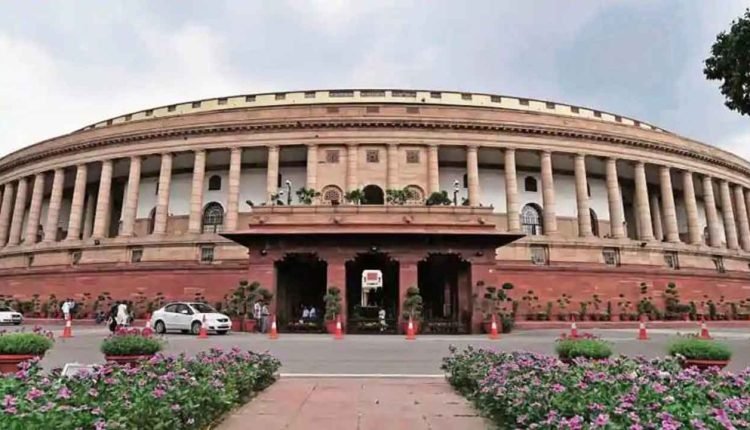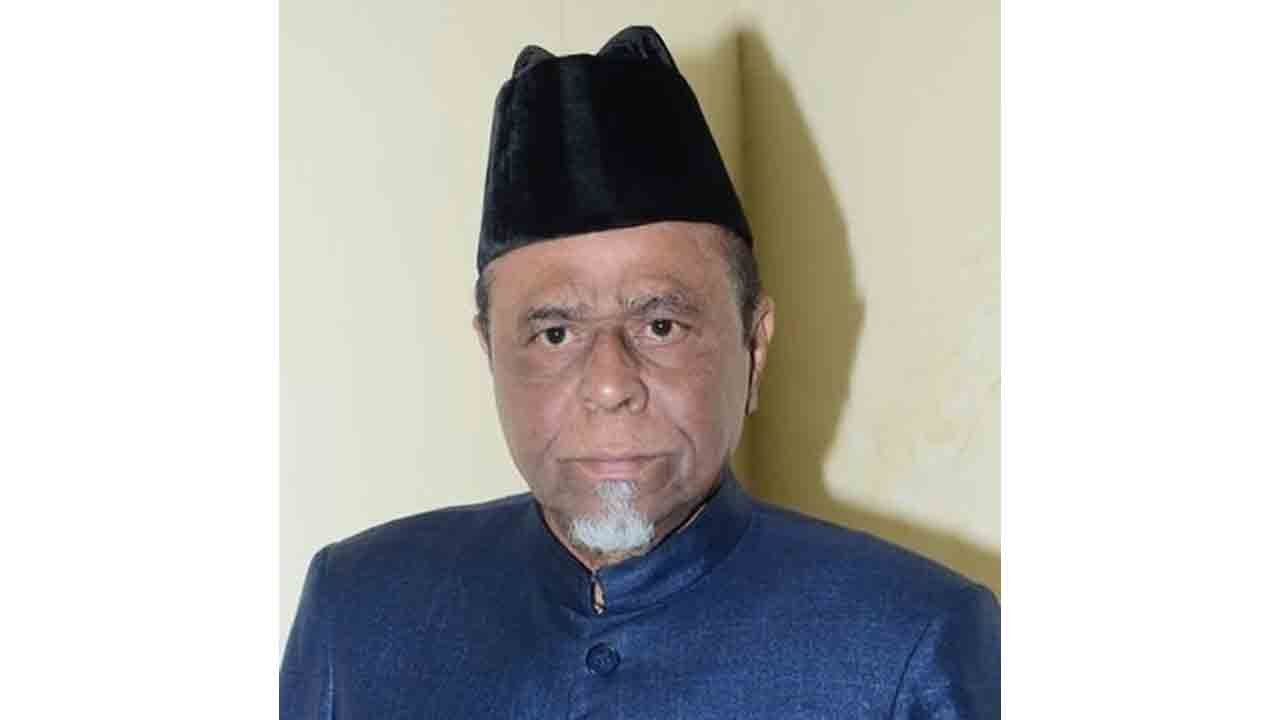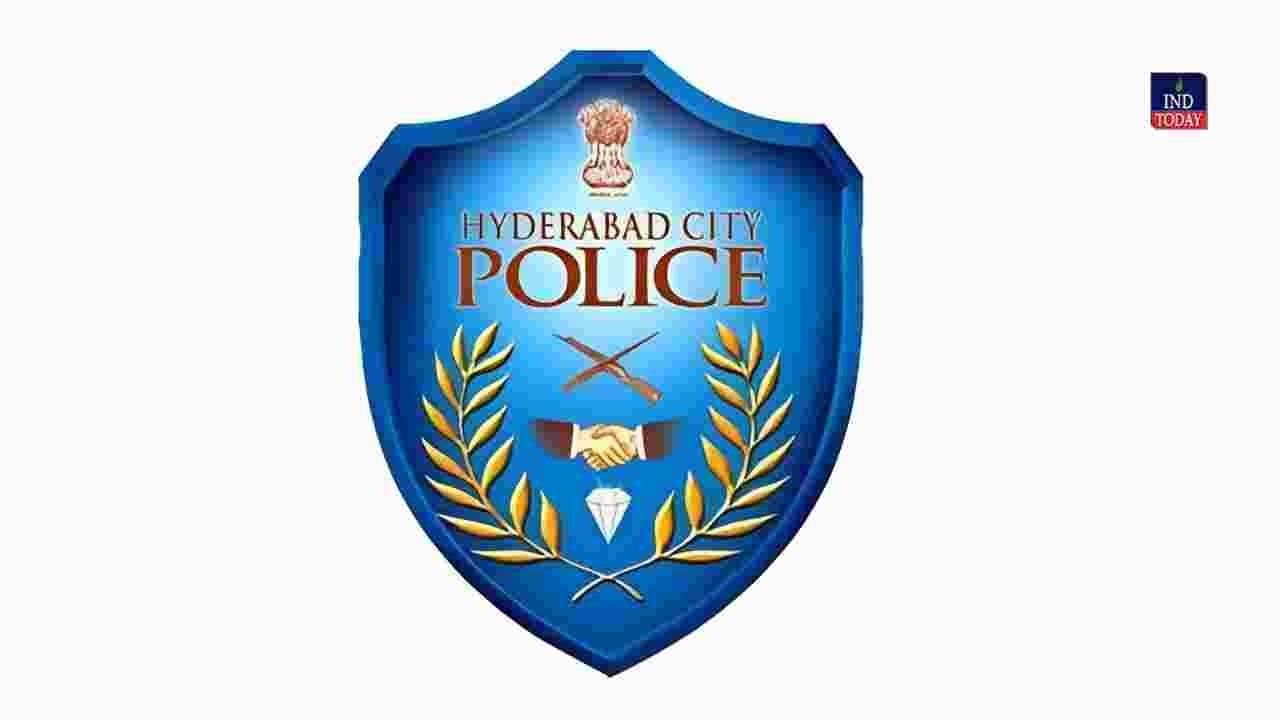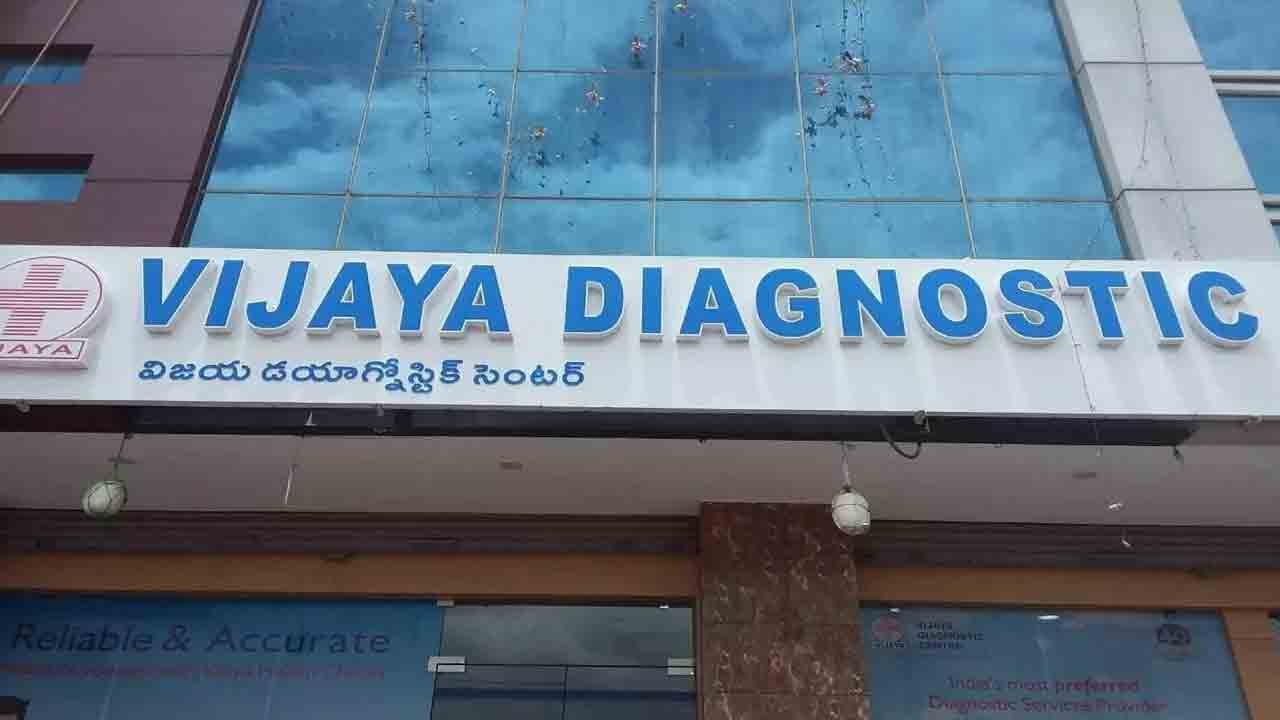Parliament Passes 16 Bills during April to November 2022: Year End Review – 2022
The Ministry of Parliamentary Affairs serves as an important link between the two Houses of Parliament and the Government in respect of Government Business in Parliament. Created in May 1949 as a Department, it soon became a full-fledged Ministry with the allotment of more responsibilities and functions. The Ministry strives to provide comprehensive and quality services to a Body of Citizens comprising, the Parliament and its Members as well as Ministries/Departments and other Organizations of the Government of India and State Governments. A glimpse of the performance of the Ministry of Parliamentary Affairs during the current fiscal (from April to November 2022) is as under:
Legislative Business:
A total of 33 Bills (9 Bills in the Lok Sabha and 24 Bills in the Rajya Sabha) were pending at the conclusion of the 7th Session of the Seventeenth Lok Sabha and 255th Session of Rajya Sabha (Winter Session,2021). 19 Bills were introduced (18 in the Lok Sabha and 1 in the Rajya Sabha) during the period, making a total of 52 Bills. Out of these, 16 Bills were passed by both Houses. 1 Bill, (in Lok Sabha) was withdrawn. A total of 35 Bills (7 Bills in the Lok Sabha and 28 Bills in the Rajya Sabha) were pending in both Houses of Parliament at the conclusion of the 9th Session of the Seventeenth Lok Sabha and 257nd Session of Rajya Sabha (Monsoon Session, 2022). The details of Sessions held during the period are as under:
Budget Session 2022:
The Budget Session, 2022 of Parliament was held from Monday 31st January 2022 to Thursday 7th of April 2022. In between, both Houses were adjourned for recess on Friday, the 11th of February 2022 to reassemble on Monday, the 14th of March 2022 to enable Departmentally related Standing Committee to examine and report on the Demands for Grants relating to various Ministries/Department.
The first part of the Budget Session yielded a total of 10 sittings of Lok Sabha and Rajya Sabha. In the second part of the Session, there were 17 sittings of Lok Sabha and Rajya Sabha. During the entire Budget Session, 2022, there were in total of 27 sittings in Lok Sabha and Rajya Sabha. During this session, a total of 13 Bills (12 in Lok Sabha and 01 in Rajya Sabha) were introduced. 13 Bills were passed by Lok Sabha and 11 Bills were passed by Rajya Sabha. The total number of Bills passed by both the Houses of Parliament was 11.
Financial Business:
The Union Budget for 2022-23 was presented to the Lok Sabha on Tuesday the 1st of February 2022. General discussions on Union Budget were held in both Houses. The Lok Sabha also discussed and voted on the Demands for Grants 2022-23, Supplementary Demands for Grants for the year 2021-22, and Demands of Excess Grants for 2018-19.
Supplementary Demand for Grant in respect of the State of Jammu and Kashmir for 2021-22, Demands for Grants in respect of the Union Territory of Jammu and Kashmir for the year 2022-23 were also discussed and voted by Lok Sabha.
Rajya Sabha also returned all the related Appropriation Bills and the entire Financial Business was completed before 31st March 2022.
The Monsoon Session 2022 of Parliament:
The Monsoon Session 2022 of Parliament was held from Monday the 18th of July, 2022 to Monday the 8th of August, 2022. The session provided for 16sittings spreading over a period of 22 days.
During the Session, 6 Bills (6 in Lok Sabha) were introduced. 7 Bills were passed by Lok Sabha and 5 Bills were passed by Rajya Sabha. The total number of Bills passed by both the Houses of Parliament was 5. One Bill was withdrawn in Lok Sabha.
Digitization of Legislatures through National e-Vidhan Application (NeVA):
National e-Vidhan Application (NeVA) is an end-to-end cloud-based digital solution for bringing all 39 Legislatures (Lok Sabha + Rajya Sabha + 31 Assemblies + 6 Councils) across the country including the 2 Houses of the Parliament on a single platform. It has been developed on the theme of ‘One Nation- One Application’. The Ministry of Parliamentary Affairs (MoPA) has been entrusted with the responsibility of rolling out NeVA in all the Legislatures across the country.
The NeVA Application has been developed to cater to various stakeholders like Members, Ministers, House Secretariat personnel, Govt. Department personnel and Citizens at large. Developed as a member-centric application, it enables them to handle diverse House Businesses smartly by putting the entire information needed by them in their hand-held devices/ tablets. It also helps the Ministers to have access to all the House Information like Question Replies, Bills, other Papers laid, etc. It equips all the Branches of legislature/ Department to handle it efficiently and create an efficient inclusive database thereby overhauling the way our legislatures work with facilities for Live webcasting. Moreover, NeVA not only aims to bring democracy closer to our citizens by giving the citizens access to the bills, the questions and answers, and the documents tabled in the Houses in an easy manner but also to empower them by providing an opportunity to the citizens for meaningful engagement with the democracy which can be achieved through e-Constituency Management Module and Grievance Module.
Operationalization of this electronic platform would account for huge savings on papers (App. 340 Cr annually), thereby leading to a reduction of carbon footprints and moving a step forward in the achievement of UN’s SDGs (15)- ‘Life on Earth’.
The President and Prime Minister had also urged the Presiding Officers to the digitalization of all the Legislative Houses in the country by adopting the NeVA to reap the benefits of the Digital Legislatures in the present scenario.
The MoPA has recently developed the new module ‘Digital Archive’ for the management of the legacy data of respective Houses for the benefit of Members and citizens equally. The Reporter’s module has also been redeveloped. Digital House module, a Question processing module, a committee module, a member’s module, a master content management module, a user management module, etc. have also been upgraded as per the requirements of various Legislatures. The NeVA website has also been updated with various new features and the latest designs.
As far as the current status of implementation of NeVA is concerned, a total of 21 Legislatures (19 States) viz. Punjab, Odisha, Bihar {both Houses}, Meghalaya, Mizoram, Manipur, Gujarat, Arunachal Pradesh, Nagaland, Puducherry, Tripura, Himachal Pradesh, Chhattisgarh, Tamil Nadu, Sikkim, Haryana, Uttar Pradesh{both Houses} Jharkhand, Jammu & Kashmir have signed the Memorandum of Understanding (MoU) with MoPA, out of which 17 legislatures (15 States) viz. Punjab, Odisha, Bihar (Both Houses) Nagaland, Manipur, Sikkim, Tamil Nadu, Meghalaya, Haryana, Tripura Uttar Pradesh (Both Houses), Mizoram, Gujarat, Jharkhand, Puducherry have been sanctioned the project along with the release of required funds. At present, 8 Legislatures, viz. Bihar Council, Nagaland Assembly, Uttar Pradesh Assembly, Haryana Assembly, Mizoram Assembly, Meghalaya Assembly, Uttar Pradesh Council, and Tamil Nadu have already been transformed into Digital House through NeVA. Other Houses are also on the path of becoming paperless shortly.
Youth Parliament Program
The Youth Parliament Program is run with a view to strengthen the roots of democracy, inculcate healthy habits of discipline, develop tolerance of divergent views, and familiarize the student community with the working and functioning of Parliament. The Youth Parliament Program is organized in 2 modes:-
- Youth Parliament Competition (YPC):
The following YPCs were organized this year: –
- Group Level Competition of the 16th National Youth Parliament Competition (NYPC), 2019-20 for Universities / Colleges wherein 35 institutions participated
- 33rd NYPC, 2022-23 for Kendriya Vidyalayas wherein 150 institutions participated
- Regional Level Competition of 24th NYPC, 2022-23 for Jawahar Navodaya Vidyalayas wherein 80 institutions participated
- 55th YPC for schools under Directorate of Education, Govt. of NCT of Delhi and NDMC wherein 39 institutions participated
2) Web-portal of National Youth Parliament Scheme (NYPS):
The web portal of the NYPS was launched on 26th November 2019 to increase the outreach of the youth parliament program to every nook and corner of the country. Registration for the first edition of NYPS was closed on 31st July 2022. 8317 registrations and 373 event completion reports were received on the portal. Registration for the second edition of NYPS was opened on 1st August 2022. Till 30th November 2022, 1702 successful registrations and 367 event completion reports have been received on the portal. The last date for registering for the second edition is 31st December 2022.
Consultative Committees:
The Ministry constitutes Consultative Committees of Members of Parliament and makes arrangements for holding their meetings during session and intersession periods. After the constitution of the 17th Lok Sabha, 37 Consultative Committees had been constituted for various Ministries/Departments. 38th Consultative Committee in respect of the Ministry of Labour and Empowerment was constituted on 28th July 2020. The following activities were undertaken during the year 2022: –
- One Consultative Committee for the Ministry of Law and Justice (39th) was constituted on 20th April 2022.
- 60 meetings of the Consultative Committees were held till November 2022.
- 73 Members of Parliament (Lok Sabha & Rajya Sabha) were nominated on various Committees/Councils/boards etc. set up by the Government of India.
- Deletion of membership of 69 MPs was done from the various Consultative Committees due to their resignation/ retirement/ demise etc.
The Ministry undertook Special Campaign 2.0 for the disposal of pending Matters and for ensuring Swachhata in the Offices:
The Ministry of Parliamentary Affairs launched a Special Campaign 2.0 on Disposal of Pending Matters (SCPDM), from 2nd October to 31st October 2022, focused on the disposal of public grievances, references from the Members of Parliament, Parliament Assurances, Cleanliness drive, disposal of scrap and weeding out of files /Record Management, etc.
During the campaign, the Ministry of Parliamentary Affairs has achieved the following:
- The target of 373 Physical files review was achieved.
- The target of 461 e-files reviews was achieved.
- 226 files were weeded out during the Special Campaign 2.0.
- Revenue of Rs. 1,23,810/- was generated by the selling of scraps.
The Ministry of Parliamentary Affairs deals with Public Grievances and PMO references on a priority basis and due to prompt and immediate action pendency was NIL during the campaign.
Digital Initiative National e Vidhan Application (NeVA) and Online Assurances Monitoring System (OAMS) remained Best Practices during the Special Campaign 2.0.
Celebration of Constitution Day, 2022 on 26th November 2022:
As part of Azadi Ka Amrit Mahotsav, the Ministry of Parliamentary Affairs celebrated Constitution Day, 2022 on 26th November 2022 to commemorate the adoption of the Constitution of India and to honor and acknowledge the contribution of the Founding Fathers of the Constitution. For spreading the celebrations to every nook and corner of the country, Special emphasis was laid on the mass reading of the Preamble to the Constitution on 26.11.2022 at 11:00 AM.
The celebration of the Constitution Day on 26th November 2022 was initiated with a reading of the Preamble to the Constitution by all the employees at 11 A.M. The Ministry also revamped and updated its two web portals, the first Online reading of the Preamble to the Constitution in 22 Official Languages and English (https://read preamble.nic.in/) and second Online Quiz on Indian Constitution (https://constitutionquiz.nic.in/) which were launched by the Minister of Parliamentary Affairs Shri Pralhad Joshi on 25th November 2022.
More than 13 lakh people from across the globe participated this year on both these portals as compared to 6.45 lakh people participation last year.
Online monitoring of Assurances given to the Houses of Parliament:
The Ministry of Parliamentary Affairs launched the Software application OAMS (Online Assurance Monitoring System) on the 9th October 2018.
Through this system, the ministry is receiving a bulk number of implementation reports. Periodically reminders are issued to all Ministries/Departments at the level of Minister, Secretary, and Additional Secretary regarding the quick disposal of pending assurances. In addition, Oral Evidences of various Ministries/Departments in this regard are taken by the Committee on Government Assurances to quickly dispose of the pending Assurances. The pendency of Assurances of Rajya Sabha in the year 2021 was 774 and in the year 2022, it is 624. while in Lok Sabha, in the year 2021, it was 1613, and in the year 2022, it is 1028.
As such, pendency has reduced considerably which shows that the monitoring system put in place is effective. In the year 2022, a total of 799 Implementation Reports was laid in Lok Sabha (the total number of assurances pending as of date is 760). In the year 2022, a total of 317 Implementation Reports were laid in Rajya Sabha (the total number of assurances pending as of date is 520)
Next Story :
Now you can get the latest stories from Indtoday on Telegram every day. Click the link to subscribe. Click to follow Indtoday’s Facebook page and Twitter and Instagram. For all the latest Hyderabad News updates






